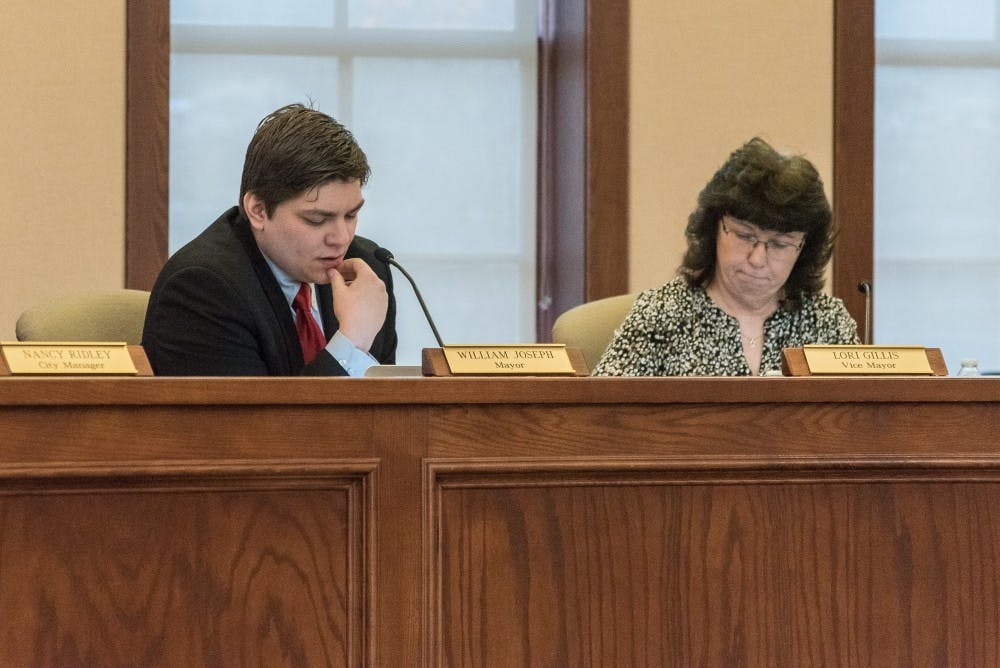City commission discusses potential 2020 census pitfalls

Mayor Will Joseph and Vice Mayor Lori Gillis look over agenda items at the Mount Pleasant City Commission Meeting March 25 at City Hall.
A growing concern for participation in the Michigan 2020 Census was addressed at the City Commission meeting on Sept. 23.
A presentation on the issue and what is being done by the Great Lakes Bay Regional Census Hub was presented by coordinator Chloe Updegraff.
The goal of the group is to get a fair and accurate count in the upcoming census because $104 million of annual federal funding for Isabella County is at risk, she said.
In the presentation, Updegraff addressed the online first model. With the population becoming “increasingly more low income and older," the internet based method is not ideal for these individuals as they may not have access to or understanding of the technology, she said.
Cutbacks on local offices for the Census Bureau are also occurring, she said. Therefore, some of the door-to-door outreach is decreasing, making it more difficult for the Census Bureau to have a local presence.
Programs that individuals are dependent on like Medicare, Medicaid, food assistance, free and reduced lunches for children and many others are at stake. Funding for roads, schools and communities could be at risk as well, she said.
In addition, Michigan's voice in Washington D.C. is reliant on census information.
“Michigan lost a seat in the House of Representatives in the last census. The prediction from George Washington University is that we can potentially lose two seats this time around,” Updegraff said. “We know we’ve lost population, we know we were hit hard with the Great Recession. So we need to especially reach the folks that were not reached the last time around.”
With Mount Pleasant being “right on the cusp” of the 25,000 population measure, a significant amount of money can be lost if the city falls below that number, she said. It is approximated that for every person that goes unaccounted for, $1,800 will be lost.
Commissioner Tony Kulick said he believes the hardest group to reach will be off-campus students, due to their mindset on where “home” really is.
“The hardest group to reach is off campus students,” Kulick said. “(Students think) this isn’t home, home is where mom lives. Home is where it says on my driver’s license… (However,) home is where you live the majority of the year. If you’re a student at Central Michigan University, you’re a resident of either Mount Pleasant or Union Township.”
To combat the lack of involvement, Updegraff said the group will be working with local nonprofit committees and forming an advisory committee to advise the work.
Updegraff asked the commissioners for help promoting the census with strategies like social media, outreaching to constituents and helping identify hard to count populations in the area.
“We want to make sure that we are reaching everybody this time around. Students, homeless [people] and every population that we can to make sure that we get this right,” Updegraff said. “(To make sure) we are not losing that $1,800 per person, we’re not losing that voice in Washington D.C. and we’re getting this right for Isabella County and for the Great Lakes Bay region.”







